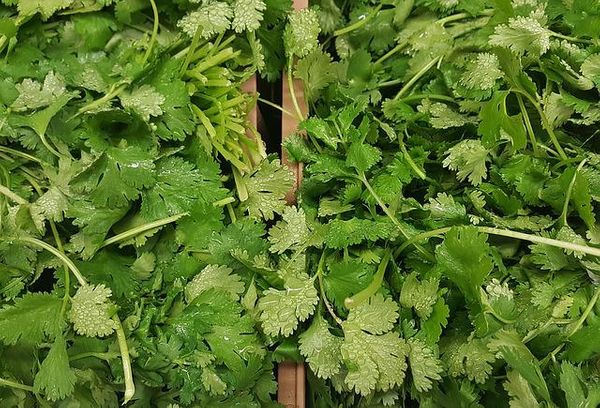Nothing may enhance a dish as effectively as the correct spice, and cultures all over the world have determined that coriander is the spice. The plant’s leaves are also widely used, and its seeds are used in everything from curries to pastries. But this plant isn’t only adaptable; there’s more to it.
The seeds and leaves of coriander plants can both be eaten, however herbs and spices are most frequently made from their leaves and seeds. The plant has some outstanding health advantages in both forms.
Coriander has a lot of health benefits thanks to its vitamins, minerals, and antioxidants. Here, let us explore many health benefits of coriander –
Coriander is Full of Antioxidants
Coriander is full of Antioxidants, which are crucial for defending your body against free radicals. Free radicals are unbound oxygen molecules that can harm your cells, possibly resulting in cancer, heart disease, and other conditions.
The antioxidants in coriander assist in removing free radicals from your body, lowering your risk of developing some malignancies and even slowing the ageing process.
Coriander Helps In Lowering Heart Disease Risk
Your heart health can benefit from the numerous advantages of coriander. The herb has a diuretic effect, which can lower blood pressure by helping to flush out surplus salt from the body. Coriander may also help lower poor LDL cholesterol, which lowers your risk of atherosclerosis, a kind of coronary heart disease.
Also Read: Health Benefits of Nutmeg: Nutritional Values, Risk and Side Effects
Coriander Helps To Reduced Inflammation
Coriander shows promise in helping to reduce inflammation in the body. Inflammation is linked to several uncomfortable conditions, from cancer to heart disease. The antioxidants in coriander have been linked to reduced inflammation and slowed the growth of cancer cells in the lab.

Coriander Helps In Reduced Blood Sugar Level
Diabetes patients’ blood sugar levels have been proven to be considerably lowered by coriander seeds. Recent studies demonstrate that coriander aids in the activation of the enzymes necessary for your body to efficiently handle blood glucose. More research is required, however increasing coriander in the diet may be beneficial for persons with high blood sugar.
Coriander Can Rich in Immune-Boosting Antioxidants
Numerous antioxidants included in coriander protect cells from the harm that free radicals can do. Its antioxidants have been proven to help your body combat inflammation. These compounds include terpinene, quercetin, and tocopherols, which may have anticancer, immune-boosting, and neuroprotective effects, according to test-tube and animal studies. ( Source)

Nutrition And Nutritional Value Of Coriander
According to the National Nutrient Database of the United States Department of Agriculture, 100g of Coriander seed has the following nutrients (USDA). (Source)
- Water 8.86 g
- Energy 298 kcal Calculated
- Energy 1240 kJ
- Protein 12.4 g
- Total lipid (fat) 17.8 g
- Ash 6.02 g
- Carbohydrate, by difference 55 g
- Fiber, total dietary 41.9 g
- Calcium, Ca 709 mg
- Iron, Fe 16.3 mg
- Magnesium, Mg 330 mg
- Phosphorus, P 409 mg
- Potassium, K 1270 mg
- Sodium, Na 35 mg
- Zinc, Zn 4.7 mg
- Copper, Cu 0.975 mg
- Manganese, Mn 1.9 mg
- Selenium, Se 26.2 µg
- Vitamin C, total ascorbic acid 21 mg
Coriander May Cause Allergic Reaction: Precautions
Some spices, such as coriander, have the potential to cause an allergic reaction. Anaphylaxis is one example of a severe symptom that can be present. Consult a doctor if you have any doubts about whether you may be allergic to coriander. Additionally, before using coriander, anyone who is expecting, nursing, has diabetes, low blood pressure, or are two weeks out from surgery should consult a doctor.
Some medications, such as those for diabetes, high blood pressure, photosensitivity-increasing pharmaceuticals, or sedative drugs, may be affected by coriander. If you take one of these medications, speak with your doctor before consuming coriander.
Health Views, an online health website covers exclusively on nutrition and nutritional value of all foods – Check out the nutrients here at Healthy Foods.





